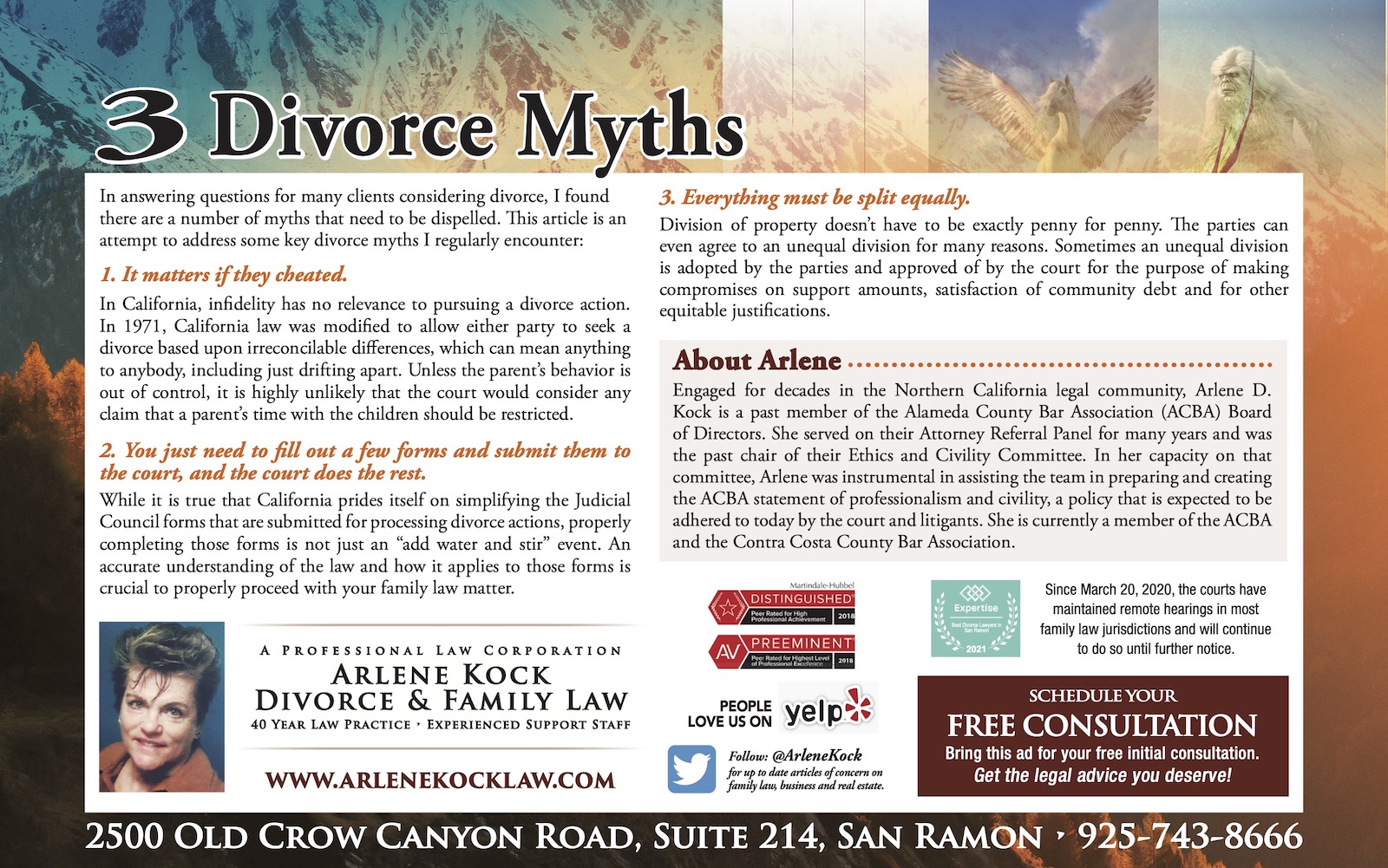In answering questions for many clients considering divorce, I found there are a number of myths that need to be dispelled. This article is an attempt to address some key divorce myths I regularly encounter:
1. It matters if they cheated.
In California, infidelity has no relevance to pursuing a divorce action. In 1971, California law was modified to allow either party to seek a divorce based upon irreconcilable differences, which can mean anything to anybody, including just drifting apart. Unless the parent’s behavior is out of control, it is highly unlikely that the court would consider any claim that a parent’s time with the children should be restricted.
2. You just need to fill out a few forms and submit them to the court, and the court does the rest.
While it is true that California prides itself on simplifying the Judicial Council forms that are submitted for processing divorce actions, properly completing those forms is not just an “add water and stir” event. An accurate understanding of the law and how it applies to those forms is crucial to properly proceed with your family law matter.
3. Everything must be split equally.
Division of property doesn’t have to be exactly penny for penny. The parties can even agree to an unequal division for many reasons. Sometimes an unequal division is adopted by the parties and approved of by the court for the purpose of making compromises on support amounts, satisfaction of community debt and for other equitable justifications.
About Arlene
Engaged for decades in the Northern California legal community, Arlene D. Kock is a past member of the Alameda County Bar Association (ACBA) Board of Directors. She served on their Attorney Referral Panel for many years and was the past chair of their Ethics and Civility Committee. In her capacity on that committee, Arlene was instrumental in assisting the team in preparing and creating the ACBA statement of professionalism and civility, a policy that is expected to be adhered to today by the court and litigants. She is currently a member of the ACBA and the Contra Costa County Bar Association.
Since March 20, 2020, the courts have maintained remote hearings in most family law jurisdictions and will continue to do so until further notice.


